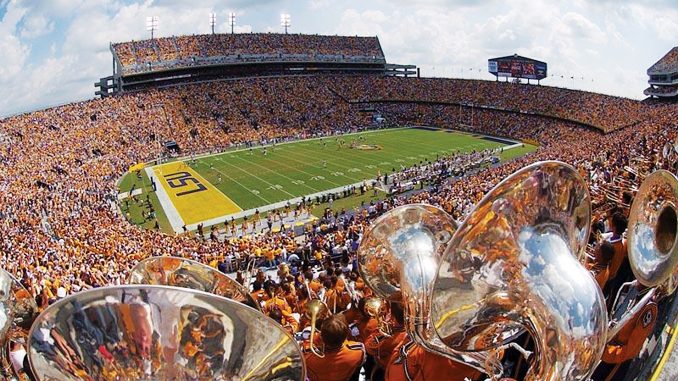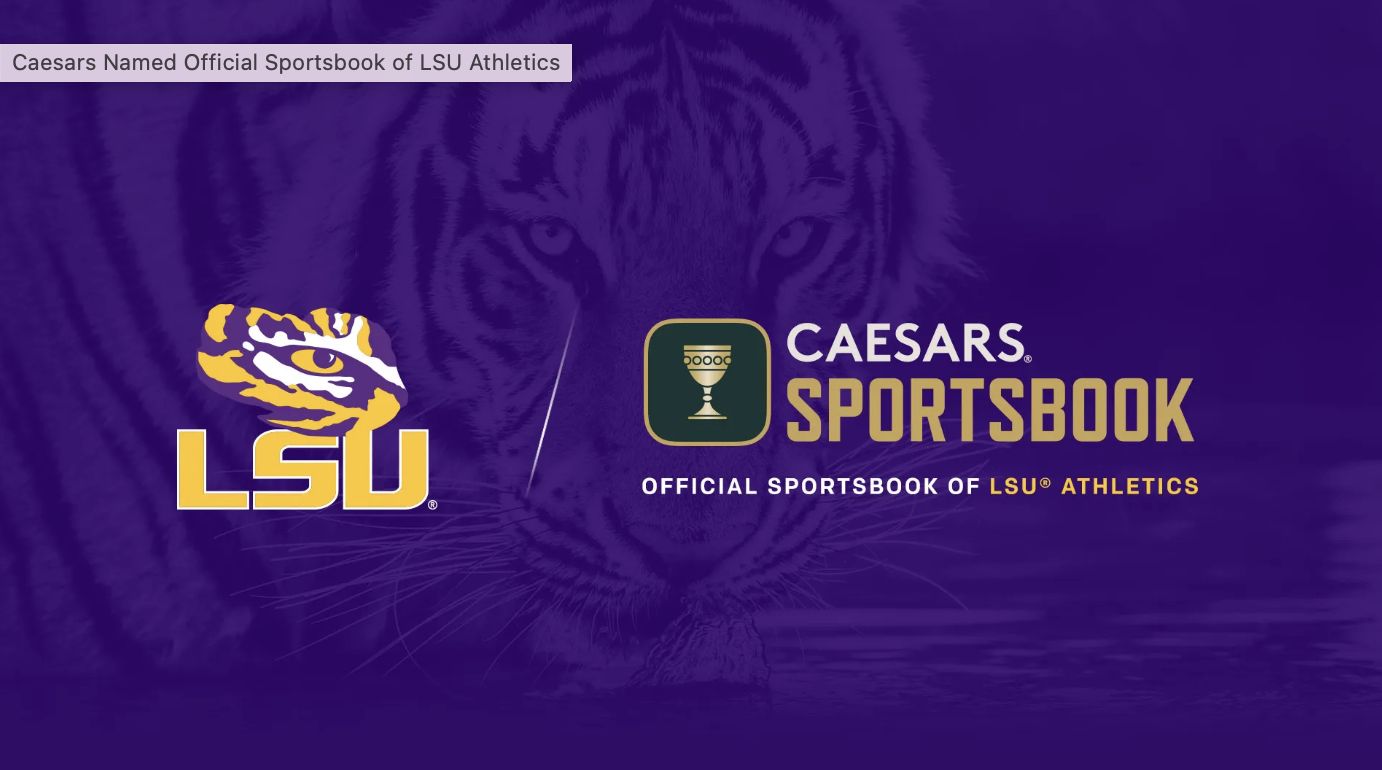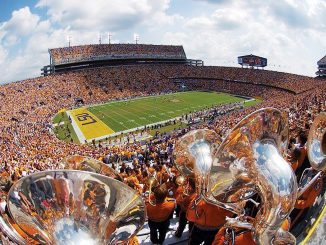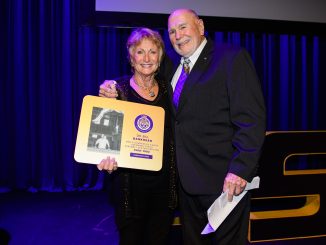
LSU isn’t recording complaints from student athletes in most sports
by Piper Hutchinson, Louisiana Illuminator
September 2, 2025
LSU is not documenting feedback from student athletes in most of its athletic programs, including football, raising concerns about the university’s compliance with NCAA rules.
In a public records request, the Louisiana Illuminator and Tiger Rag asked for five years of player exit interviews, which all NCAA Division I schools are required to conduct with a sampling of athletes every year at the time they graduate or their eligibility expires.
The interviews are intended to give athletes an opportunity to provide critical feedback on their school’s sports programs. But for most teams, LSU did not document a single interview during the five-year period.
LSU athletics spokesman Zach Greenwell said the university is complying with the NCAA’s exit interview bylaw, but the interviews aren’t always documented – which the NCAA does not require.
The NCAA gives schools immense latitude on how to conduct the interviews and what questions to ask. Its rules don’t require that the questions are asked in person, allowing some schools to provide students with an online form. The NCAA did not respond to a request for comment asking whether there are penalties for institutions that don’t comply or what value the bylaw holds if institutions don’t have to prove compliance.
For the five-year period, LSU did not document any interviews with the football, men’s basketball, men’s golf, women’s golf, gymnastics or track and field programs. No LSU team had at least one interview documented annually, and most sports went multiple years without having any interviews documented, representing more than 1,000 student athletes who may have had their feedback ignored.
!function(){“use strict”;window.addEventListener(“message”,function(a){if(void 0!==a.data[“datawrapper-height”]){var e=document.querySelectorAll(“iframe”);for(var t in a.data[“datawrapper-height”])for(var r,i=0;r=e[i];i++)if(r.contentWindow===a.source){var d=a.data[“datawrapper-height”][t]+”px”;r.style.height=d}}})}();
A review of the 64 athlete interview forms LSU provided in response to the public records requests revealed complaints about facilities and coaches — including multiple allegations of bullying and intimidation by swimming and diving coaches.
It is rare for exit interviews from a major college athletic program to be released. In 2019, the online news outlet The Intercollegiate submitted public records requests for the interviews from every public NCAA Division I program. Most universities denied the requests, including LSU and almost every other Southeastern Conference institution. The unavailability of these records makes it difficult to compare LSU’s compliance with peer institutions.
The institution’s director of athletics, senior woman administrator or designated representatives (excluding coaching staff members) shall conduct exit interviews in each sport with a sample of student-athletes (as determined by the institution) whose eligibility has expired. Interviews shall include questions regarding the value of the students’ athletics experiences, the extent of the athletics time demands encountered by the student-athletes, proposed changes in intercollegiate athletics and concerns related to the administration of the student-athletes’ specific sports.
Experts say not documenting student-athletes’ feedback is a disservice to them, and it raises concerns about whether the university is actually conducting the interviews at all.
Molly Harry, a University of Florida sports management professor whose research has focused on NCAA exit interviews, said it is concerning LSU is not documenting its athletes’ feedback.
“Athletes are gaining power economically, as we speak, with [revenue sharing] … but that doesn’t necessarily mean that they have the more procedural power in the athletics department,” Harry said. “These exit interviews could potentially lead to changes in the future through that procedure.”
Greenwell did not respond to follow-up questions about why LSU only documents interviews for certain sports, how many interviews LSU has conducted in each sport or how LSU is able to use information it gathers in the interviews if no notes are taken.
Harry said not recording interviews for men’s sports could lead to gender inequities, as they tend to have worse academic and social experiences than women athletes. Football and basketball programs also tend to have more taxing travel schedules, and not obtaining feedback from these teams leaves a significant gap in the data, she added.
“You’re not getting the perspective of the high profile sports who might have found it pretty unmanageable,” Harry said.
Allison Smith, a professor of sport management at Georgia State University, said allowing universities to self-police is a weakness in many NCAA bylaws.
“The NCAA needs to uphold what the member institutions are doing regarding their bylaws,” Smith said.
LSU initially attempted to deny the Illuminator’s public records request when it was made in 2023, arguing exit interviews were exempted from disclosure under the Family Educational Rights and Privacy Act, a federal law that protects students’ personal information.
With the help of the Tulane First Amendment Law Clinic, the Illuminator and Tiger Rag were able to obtain the 65 interviews that were recorded, though they were released with redactions. On each document, LSU redacted the student’s name as well as their response to questions about team medical and mental health providers.
YOU MAKE OUR WORK POSSIBLE.
Louisiana Illuminator is part of States Newsroom, a nonprofit news network supported by grants and a coalition of donors as a 501c(3) public charity. Louisiana Illuminator maintains editorial independence. Contact Editor Greg LaRose for questions: [email protected].




Be the first to comment